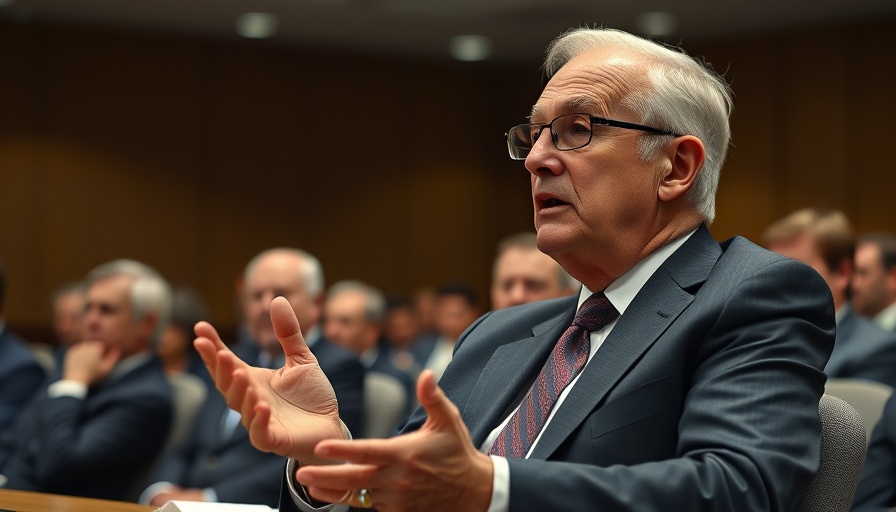
Warren Buffett's Unique Presence at Berkshire's 2026 Shareholder Meeting
Warren Buffett, the renowned Chairman and CEO of Berkshire Hathaway, has announced that he will attend the upcoming 2026 Berkshire Hathaway Annual Shareholder Meeting. However, in a departure from tradition, he will not take questions from attendees. This decision has sparked curiosity and discussions among business professionals and Berkshire shareholders alike.
The Implications of Reduced Interaction
Buffett's choice to attend but refrain from fielding questions raises pivotal conversations about shareholder engagement. In recent years, the annual meeting has been hailed as a crucial platform for direct communication between shareholders and one of the most successful investors in history. With the absence of a Q&A session, experts wonder how this may impact shareholder sentiment.
The Changing Landscape of Business Leadership
This adaptation in Buffett's engagement speaks volumes about contemporary shifts in corporate governance and investor relations. Business leaders across the globe are reevaluating how they interact with their shareholders, often opting for structured formats that limit spontaneous questioning. This trend reflects broader issues within corporate culture, including an increasing focus on control and image management.
What This Means for Berkshire Hathaway Shareholders
The decision to exclude questions from the upcoming meeting could lead to feelings of detachment among shareholders who value the open forum. Stakeholders often look forward to direct insights and clarifications from Buffett, especially regarding investment strategies and market outlooks. The absence of this interactive element could leave many questions unanswered, impacting investor confidence.
Future Predictions for Shareholder Meetings
As businesses continue to evolve, the style of shareholder meetings is likely to change as well. Organizations may explore innovative methods for engaging with investors, which might include more digital formats or moderated discussions that allow for controlled interaction. Such changes could redefine the relationship between business leaders and their shareholders, emphasizing accountability and transparency in a controlled manner.
Conclusion: Navigating the New Normal in Business Relations
As Berkshire Hathaway prepares for this unconventional shareholder meeting, it is important for investors to adapt and rethink their engagement strategies. The move may signify a broader trend in corporate culture that values structured communication over spontaneous. In this fast-evolving business landscape, embracing such changes could be essential for fostering healthy investor relations and ensuring continued trust in leadership.
 Add Row
Add Row  Add
Add 



Write A Comment